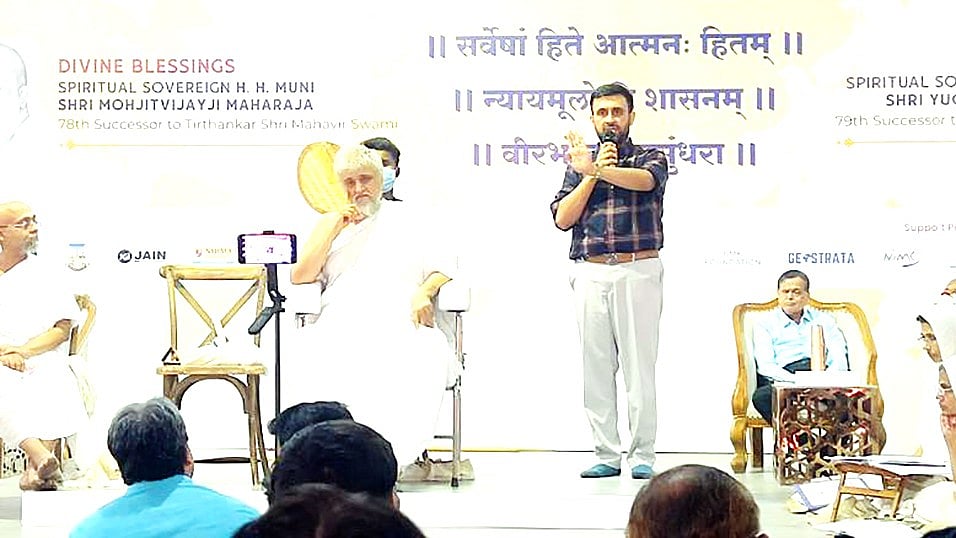A word in a language is not just a linguistic and semantic entity, but a relic from the past; it carries the baggage of an emotional, cultural, political and social history with it. A word is a cultural artifact. The story of the origin of certain words in English is as interesting and unbelievable as a Gothic novel.
For example the word ‘boycott’: (Ex: The lawyers are boycotting the court) gives historical evidence and nature of the British colonization of Ireland. So, by looking into the history of the word, we are looking into the Irish – British relationship in the past and the nature of British control over its colony. The verb ‘boycott’ has originated from a real individual, Captain Charles C Boycott, an agent to manage an English man’s estates in Ireland about the year 1880. Boycott became unpopular because of his harsh treatment of the tenants. The tenants ‘boycotted’ the work in the farm. Capt Boycott was removed.
A very ordinary, commonly used word, verging on slang like ‘guy’, has much to do with the political, religious history of England. The origin is from the name of Guy Fawkes who occupies a dubious reputation in the British history of 17th Century, for his active involvement in the Gun Powder plot. This was a rebellion by Catholics to overthrow the British king James I blowing up the Parliament House. Guy Fawkes was the master planner and was burned alive.
The verb ‘lynch’ carries us back to American history and inter racial conflicts that later led to the birth of the Black’s Civil Right Movement. Captain William Lynch of Virginia, United States, gave the word to the language. A few Blacks were lynched and killed on the road by whites; Justice Lynch in the year 1780, passed the judgement approving the action of the whites and gave permission for open lynching of blacks at public places.
‘Sadism’ is a commonly used word connoting the peculiar psychic state deriving happiness from others’ misery. It is related to Marquiz de sade, of 19th Century France, a sexual pervert who used to torture his mistresses for his own pleasure. The word ‘sandwich’ owes it origin to one of the Earls of Sandwich, who was a non-stopping gambler. As a refreshment for his companion players, and himself, he suggested a new recipe out of bread, which came to be known after his name in the later years.
‘Gothic’ is a word with associations of mediaeval history, architecture, literary genre, fear, darkness, madness, etc. Originally a form of architecture used in the construction of manor houses, later it used to refer to the supernatural. Since the lords residing in this manor houses were rapists and murderers, it was believed that they were haunted by the ghosts of the men and women wronged by them, seeking revenge. Thus the gothic genre emerged characterized by horror stories, revenge theme, ghost characters, etc.
“Pandemonium” is a word much used in speech and writing. Ex: There was pandemonium in the parliament. It means utter confusion, disorder, anarchy, etc. The word created by Milton in Paradise Lost Book 1 (He was one of the most scholarly English poets) is derived from Latin’ Pan’ and Greek ‘Demonium’, meaning, the seat of the devils. After his fall into hell Satan erects Pandemonium for the devils to sit and debate. Since there was no sufficient space for the devils in pandemonium, they started pushing and pulling and there was great commotion, confusion and lack of discipline.
Elasticity of Meaning
Meaning change is mainly due to socio cultural compulsions and attitudinal factors. The word ‘villain’ has an interesting socio cultural, linguistic and social psychological history. In the middle ages, England had come under the domination of France after the Norman Conquest; Many rich landlords from Normandy settled in England. The native labourers who worked in the farms of the lords were called ‘villeins’. It simply meant a labourer in the manorial estate. For the sophisticated , rich feudal lords, these labourers or villains were coarse, uncouth , and lacked in refinement.
Later other evils such as betrayal, treachery, conspiracy murder, rape, etc were regularly attributed to these villains as their activities, presuming that their class is capable of them. ‘Vulgarity’, the word originated from Latin vulgus had similar fate. It means a crowd. In modern sense, it means any behavior suitable to, and expected of a crowd; crude, unrefined, irrational, unruly behavior.
Certain words at the beginning of its history was inclusive of more meanings, but later developed restricted or specialized connotations. ‘Meat’ was a word used to refer to any food item. (Dr Faustus: Dine with me,… after meat, I’ll try what I can do.’) Later, meat used to connote only non- vegetarian food; including fish and chicken. In the history of the word, later, the meaning became restricted, or specialised, that is, it connoted the flesh of only animals.
The word ‘deer ‘ in Renaissance era stood for any animal that lived in the forest. Lion and tiger were deer. ‘Wed’ originally meant entering into a contract, a pledge between two individuals etc. In the present, the word is used in a restricted way: enter into wedlock or matrimony. Marriage too is a contract where the man and the woman takes a pledge to fulfill marital obligations.
The word ‘shroud’ up to 15th century used to refer to any garment; ‘starve’ originally meant to die of hunger or cold, (the association of death disappears). ‘Voyage’, meant any type of travel, using any method.









